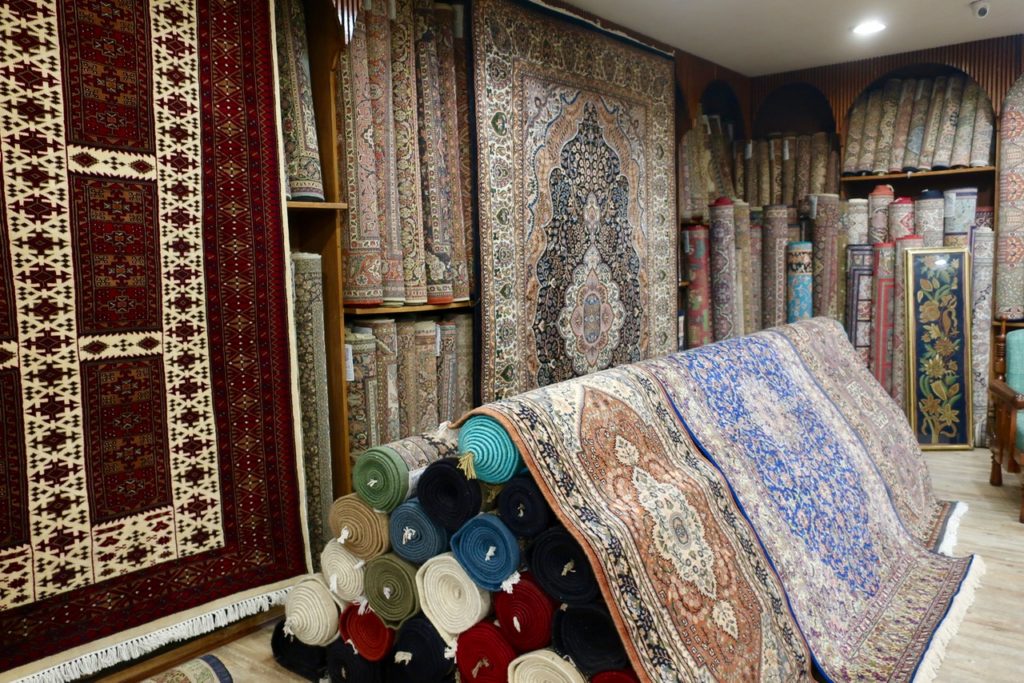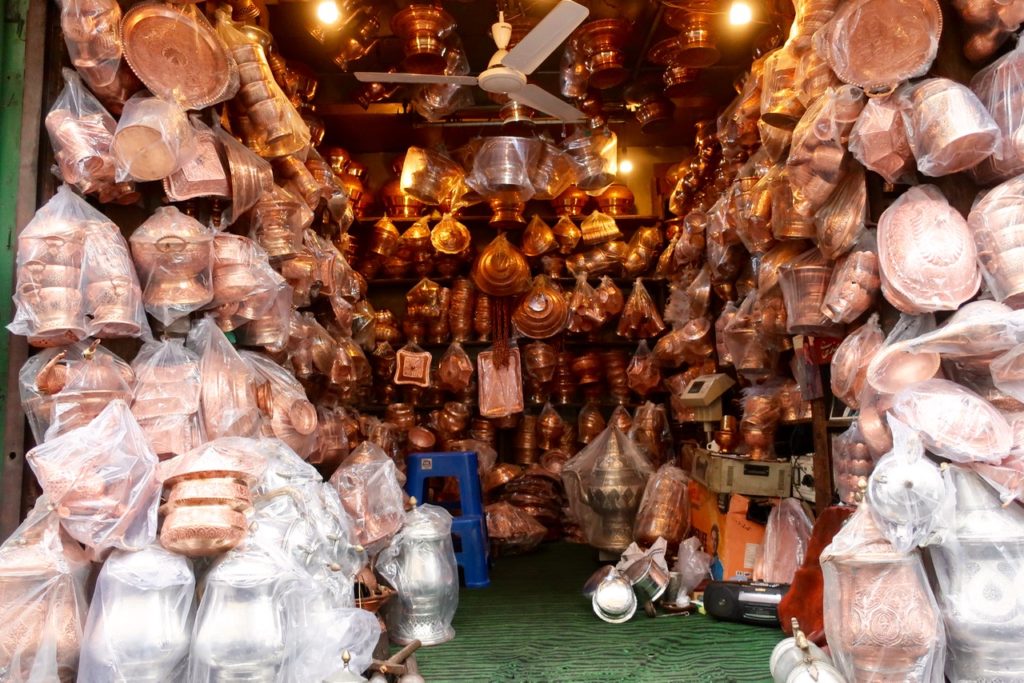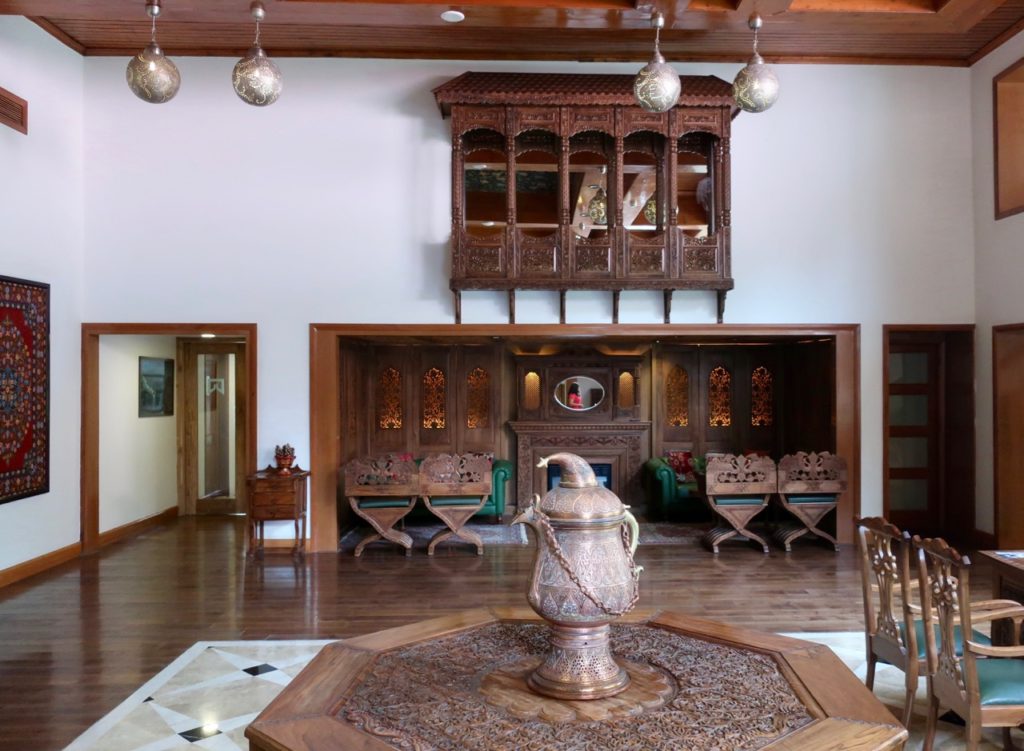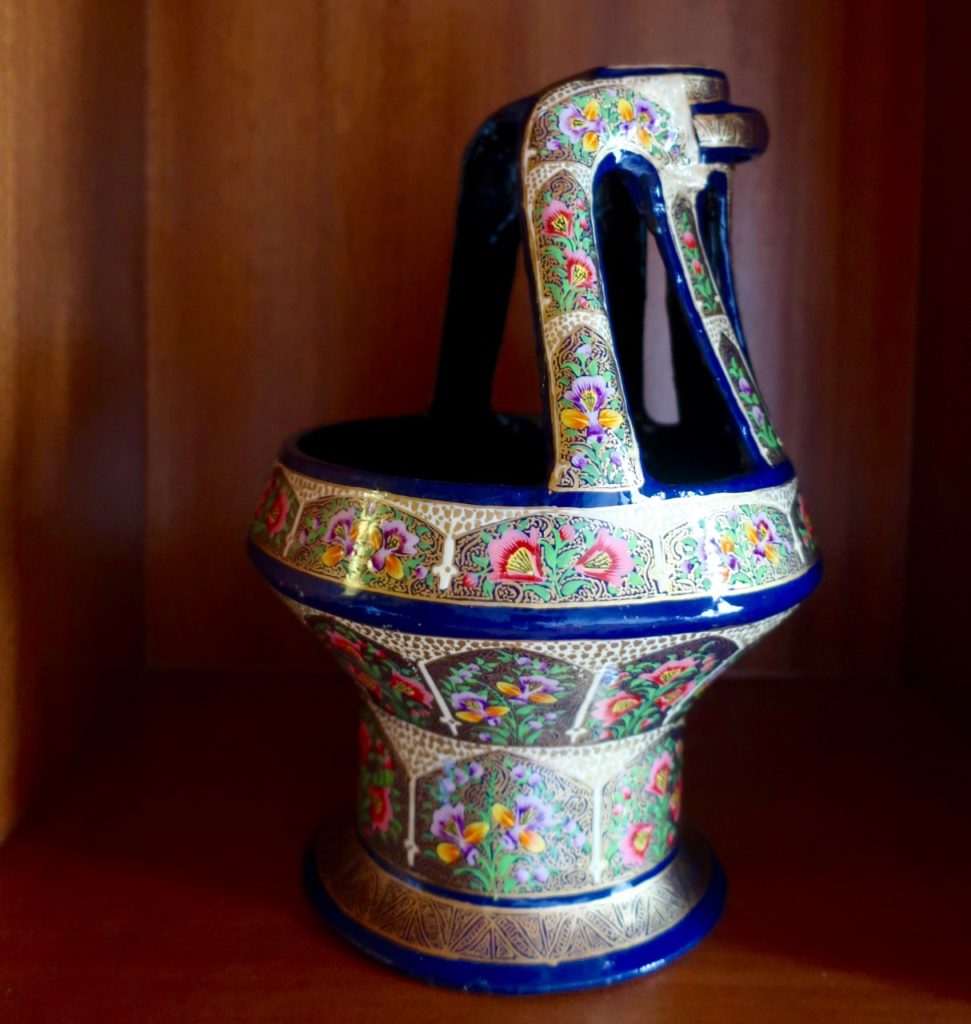The northernmost state of India is often in the news for political turmoil and instability. But it is also one of the most resourceful and artistic parts of the world.
Growing up in the city of Chandigarh, my family would often buy products from Kashmiri vendors going door to door, carrying wool carpets, pashmina shawls and embroidered tunics in the back of cycle rickshaws. We thought their stuff was so exotic! It was a prized possession to own a handwoven a Kashmiri carpet even 30 years ago.
During my recent visit to Kashmir, I was able to put a face to the goods. I visited weavers living and working in their one room shacks; watched how they sat on the floor for hours at a time, working on the same carpet for up to 3 years. It was laborious and caused eye and back problems, yet that was a skill passed on from generations that employed them. I had a new found appreciate for the craft.
Here are few things you must buy from Kashmir:
Saffron (kesar) – Kashmir is one of the few places in the world that grows saffron and you will have to travel to a saffron farm near Pampore Fields, a few miles out of Srinagar. Watch fields filled with purple flowers blooming in October. Saffron is used in many Kashmiri dishes and desserts. Every household and shop in Kashmir will serve guests kahwa, green tea made with saffron and almonds.
Dried Fruits and Nuts (mewa) – Most families in rural Kashmir own fruit and nut farms, which they sell to wholesalers to sustain themselves. Walnut trees are abundant in the Kashmir valley, producing some of the finest quality organic nuts in the world. Kashmiri almonds are much smaller than California ones, but are richer with nutrients as they have more Omega 3s. Also, you can buy golden raisins, dried apricots, blueberries, and more.

Cashmere (pashmina) – Pashmina has become a household name but the fine wool textile was first woven in Kashmir and is known as “soft gold” because of it’s high value. The wool from Changthangi goats found in this region is hand spun and woven to make fine cashmere stoles (shawls), scarves and carpets. It requires a lot of patience and skill to make these products, and many Kashmiris rely on their livelihood from sales abroad.

Copper (tamba) – Mined locally from the mountains of Aismuqum in the Lidder valley of Kashmir, copper is used to make kitchen utensils and home decorations. In Old Town Srinagar, you will find shops stacked with bowls, ladles, pots and plates along with decorative water jugs. Also, most traditional Kashmiri dishes are still cooked in huge copper pots.

Wood Work – Intricately carved walnut wood furniture is an important craft in this part of the world. You will see wood balconies walking through Lal Chowk or Badshah chowk, as well as wooden beds and chairs at homes. Traditional Indian cricket bats are also manufactured in Kashmir from the wood of the willow tree, and are considered to be of the highest standard preferred by international sportsmen.

Papier-Mâché – This handicraft was brought to Kashmir by the Persians and makes for affordable gifts and decorations. Made at home and at small workshops, artisans use paper pulp to make vases, bowls, boxes and trays.
Jewelry – Kashmiri women wear lots of heavy pieces of silver chokers, long dangling earrings and headdresses, which you can find at most jewelry shops. Also found locally are Kashmiri Lac (resinous substance) necklaces, bracelets and hairpins. If you can lay your hands on it, buy the rarest sapphire in the world – Doda Sapphire, which is only found in Kashmir.
Kashmiri handicraft stores and Government run emporiums are found throughout India. But if you want to meet the artists and buy good directly from the source, plan a visit to Kashmir by contacting Go Eat Give.
My host in Kashmir during my visit in August 2018 was Ahad Hotels and Resorts.